Cyril Lord: Rise and fall of the Carpet King
- Published
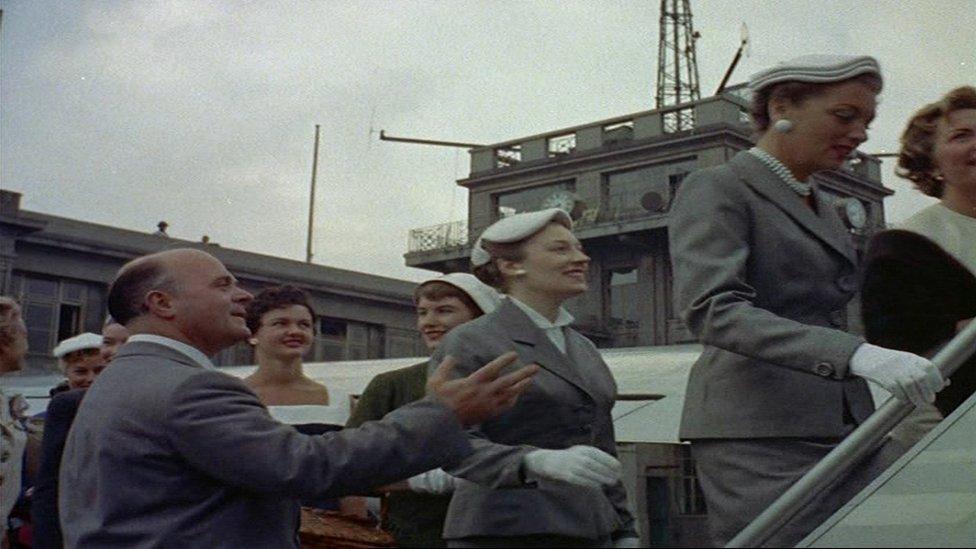
Cyril Lord flew models to Northern Ireland for fashion shoots at his properties
In his day he was one of the UK's most charismatic and colourful businessmen.
A self-made millionaire, a textile "genius", a restless entrepreneur and a Lancashire lad who fell in love with a quiet County Down town, transforming its fortunes.
Cyril Lord built a huge carpet empire and provided thousands of jobs at a time of high unemployment in the post-World War Two years.
His revolutionary tufted carpets were shipped from Donaghadee to around the UK, giving householders "luxury" they could afford in their homes.
And his celebrity lifestyle - complete with a top-of-the-range speed boat, Bentley cars, a modern house, a swimming pool and grand weekend parties - made him the talk of Northern Ireland.
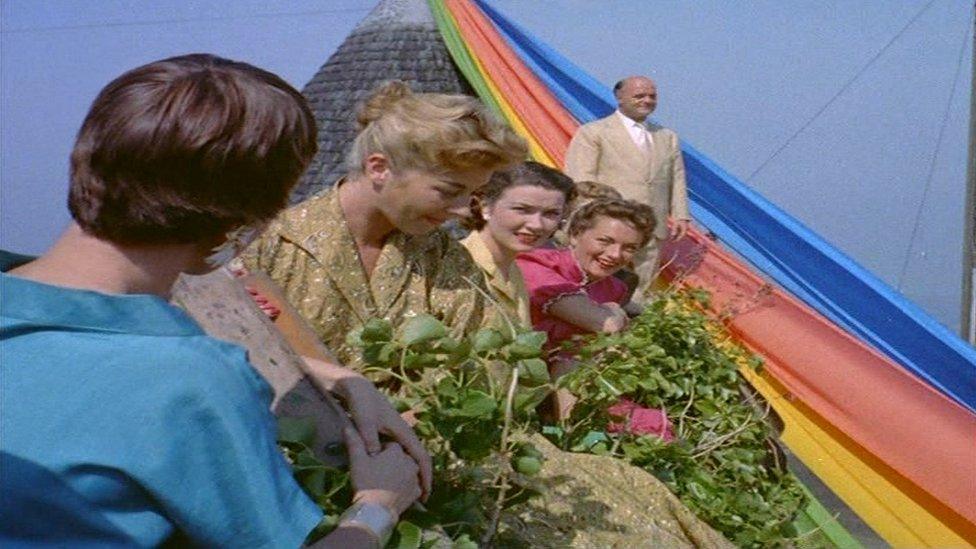
The businessman - pictured in the background - used self-publicity to generate celebrity status for himself
In Donaghadee today, former workers still have fond memories of their time working for the man known as the Carpet King.
Graham Moore, Vincent Wilson and Sam Magill all remember the excitement of starting work at the brand new factory that opened in 1957 on the outskirts of the town.
They have spoken to BBC Radio Ulster for a two-part documentary, Cyril Lord - The Carpet King, which will be broadcast on Sunday 3 February and Sunday 10 February.
Vincent had just got married and went along on a Friday for a job interview.
"I was asked to start on the Saturday and I worked Saturday and Sunday and got more money for those two days than I did for a whole week in farming," he says.
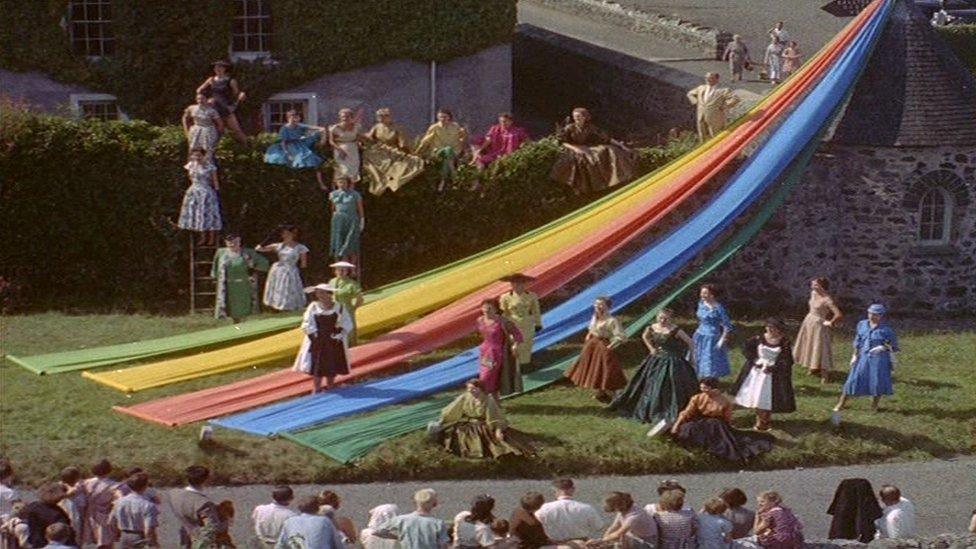
Fashion and glamour was part of Lord's lavish and colourful lifestyle
Graham drove delivery lorries for many years.
He says that as the business grew, double-decker buses brought workers in from all over the Ards peninsula and production went on around the clock.
'Consummate entrepreneur'
Cyril Lord first came to Northern Ireland during the war as a textile advisor and fell in love with the place.
He had worked his way up through the Lancashire cotton mills but when the industry was hit by cheap imports from the Far East he came up with a grand plan to make tufted carpets for the mass market.
He would centre his new business in Northern Ireland, where the Stormont government was giving generous grants to schemes that promised jobs.
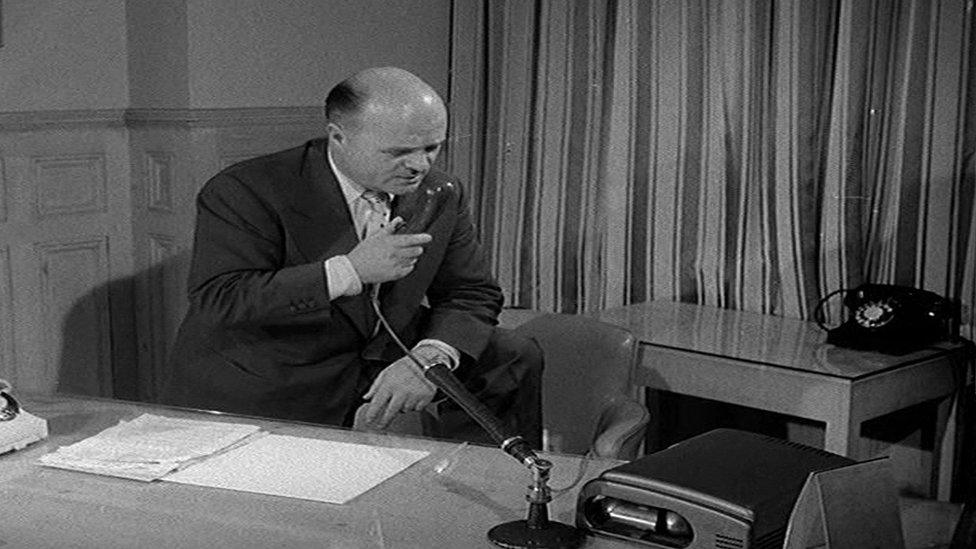
Lord became a textiles tycoon, providing employment for thousands of people
Dr Graham Brownlow, an economic historian at Queen's University in Belfast, says that Lord was a "consummate entrepreneur".
It is estimated that over 10 years he received about £7m for buildings and machinery - that's about £120m in today's money.
Lord sold directly to the public - he embraced the potential of new commercial television channels to connect with newly-affluent post-war consumers.
"Luxury you can afford by Cyril Lord" was one of the best-known catchphrases from advertisements in the early 1960s.
And he went beyond conventional advertising.
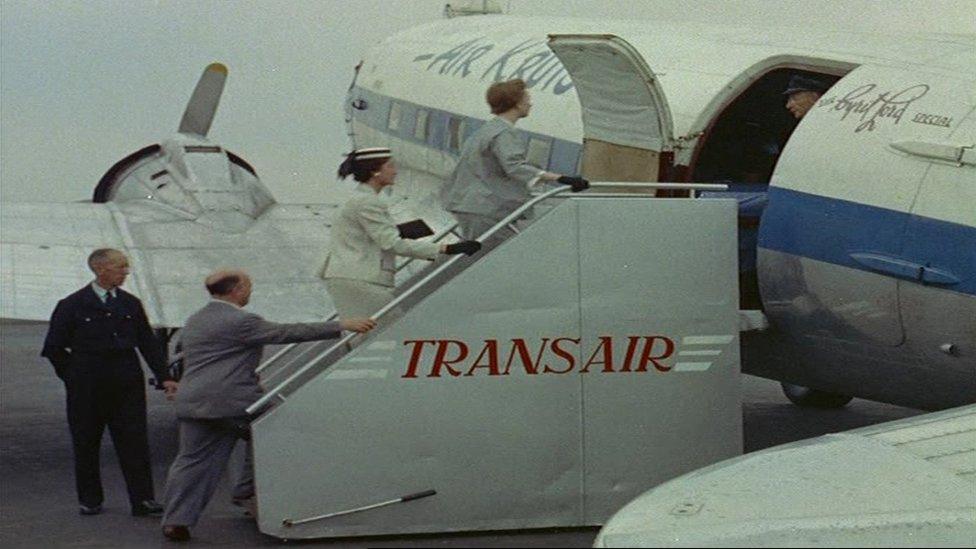
Planes, swimming pools and high-profile parties were all enjoyed by the entrepreneur
He was an incorrigible self-publicist, something akin to Richard Branson or Michael O'Leary, using a variety of stunts to become a celebrity in his own right.
As well as building factories, Lord built himself a distinctive house on the County Down coast road, with plate-glass windows and a swimming pool.
Magnificent weekend parties
It was there that he took his second wife, the London fashion and celebrity journalist Shirley Lord, who had fallen in love with him, although she was 26 years his junior.
She went on to become a famous fashion editor and now lives in great splendour in uptown Manhattan.
But she still remembers Donaghadee with great affection and the magnificent weekend parties that she and Lord hosted for the rich and famous.
"Donald Campbell came, David Frost, Gracie Fields, actor Jack Hawkins and his wife, Alan Whicker - they all came," says Shirley.
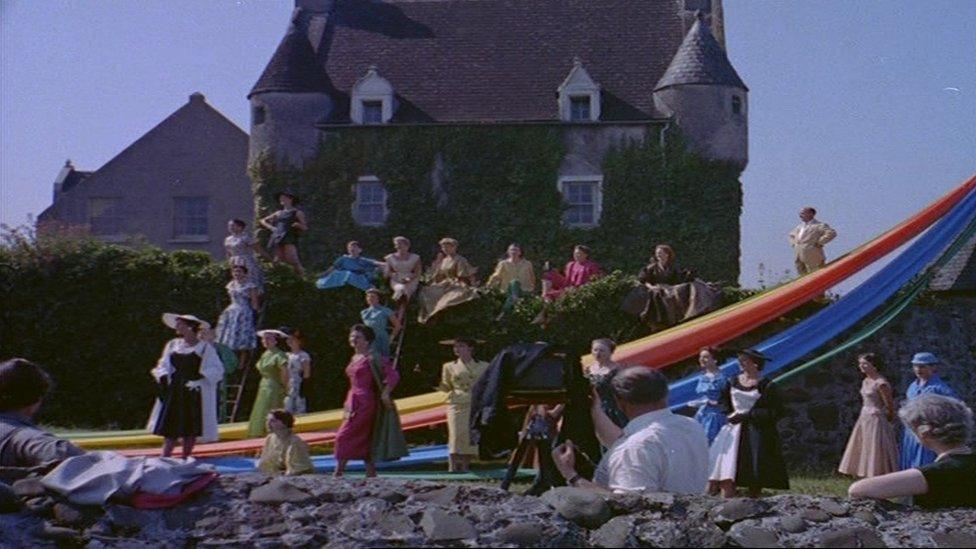
Ballygally Castle near Larne was one of the Northern Ireland properties owned by Lord
"It was a real treat for them to come from London and stay beside the great Irish Sea."
The Lords treated their guests to day trips to Scotland in the speed boat, tours of country houses, fine dining, tennis and swimming parties and musical evenings.
Northern Ireland had never seen anything like it.
Marie Adams, who used to work in the wages office, remembers people making special trips just to drive past Lord's house.
"It was like something out of tinsel-town." she says.
In part one, BBC News NI's business editor John Campbell reports on how the good times lasted for more than a decade before Lord's empire crumbled.
Next week in part two, he reports on how and why it all fell apart.